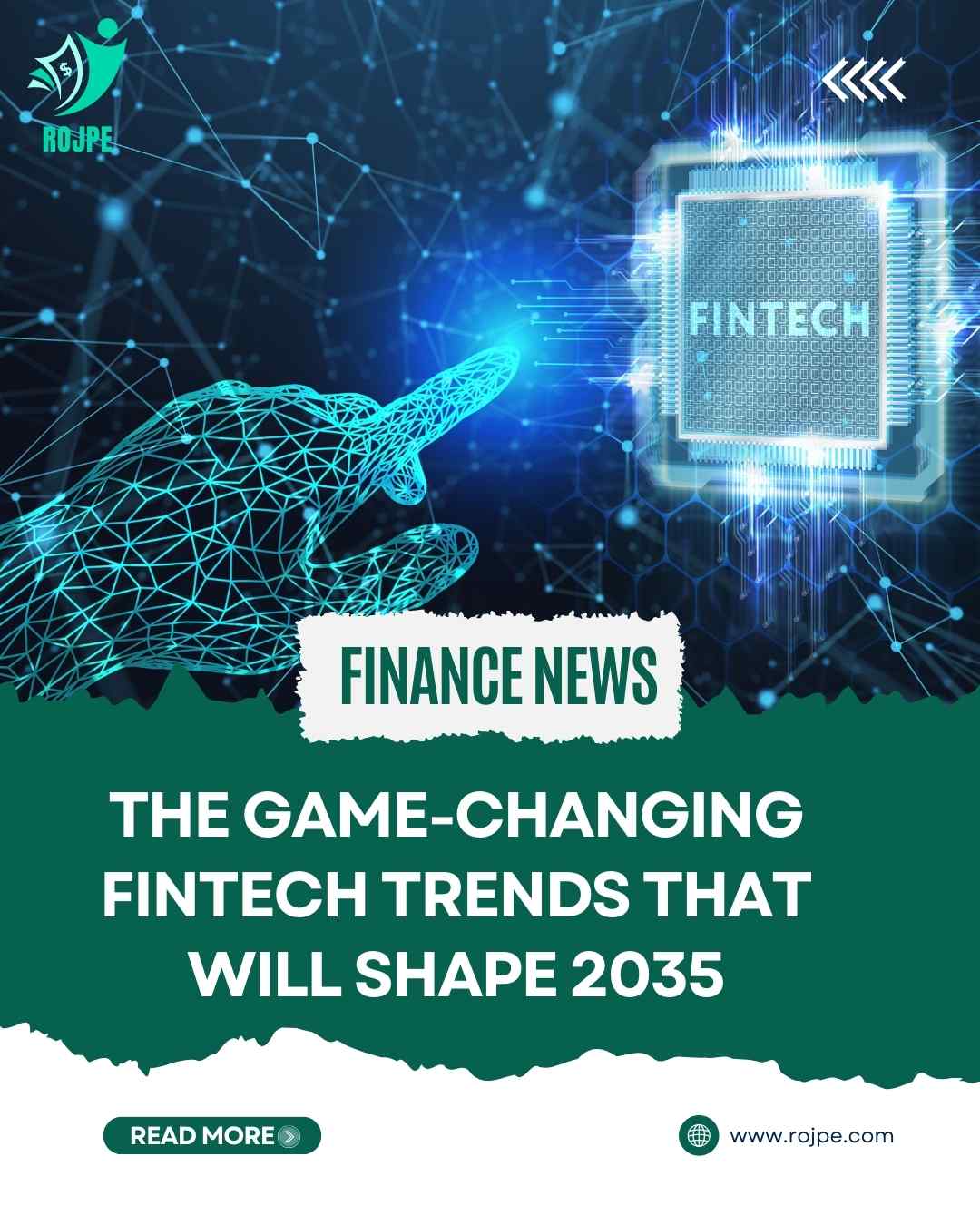The Game-Changing Fintech Trends That Will Shape 2035
October 9, 2024

They say a week in politics changes the world, but when it comes to technology, ten years feel like an eternity. What will fintech look like in 2035? It's difficult to tell, but some trends that are on the horizon give us a glimpse of where we're headed.
People always want to come up with new ideas. Finance and technology would become so intertwined that their separation would become impossible in the future. Join us as we look at the world of money.
1. AI-Powered Finance
AI is taking over simple tasks like running chat services and detecting fraud. Real disruptive changes are yet to come. It is projected that by 2035, AI will have control over entire financial ecosystems.
Imagine banks and financial services operating at a level of minimal human intervention. From predicting shifts in the stock market to generating personalized financial portfolios, just imagine it with artificial intelligence systems running everything. Forget about back-office functions and customer services of any kind, particularly those that are highly personalized and intuitive and fueled by real-time data.
Which is the catch? While this automation will change access to financial services forever, it brings some pretty sharp ethical questions into light. What happens when AI makes mistakes? Will we trust machines with our most personal financial decisions?
2. Global Digital Cash
It's already been proven that cryptocurrencies are lasting in nature, but the true breakthrough lies ahead. Digital currencies might become as common as a debit card as soon as 2035.
The central banks of the world are already studying the concept of CBDC, or central bank digital currency. And no matter whether it is Bitcoin, a derivative of the blockchain, or something new, it will be cashless. The deal will be immediate and direct, or there will be no middlemen and no delays.
On top of this, we will probably see programmable money—that is, money with smart contracts attached that automatically execute themselves under certain conditions. Paying for services as soon as they are rendered automatically will be an old, robot memory. Peer-to-peer digital transactions will have entered a new era of financial automation.
3. Virtual worlds and real markets.
Virtual economies are starting to sprout up and will explode within the next decade. In 2035, we will no longer be spatially positioned in the physical world; rather, whole virtual economies will be working in harmony.
Imagine platforms like Roblox or Fortnite where people pay for, sell, and trade virtual stuff. But by 2035, it would fully blossom into a developed virtual world economy with its own currency, financial system, and even government. When these economies are developed, virtual real estate or services such as digital architecture will simply fit into our lives in the real world.
People will invest not only in real property but in virtual assets, too, and these virtual assets will have real-world value. The lines between “real” and “virtual” economies, once sharp and delineated, will blur and become indeterminate.
4. Safeguarding money in a post-quantum world with quantum-proof security
The biggest risk over the next decade is probably something called quantum computing. While quantum technology has great promise, it also poses a huge risk to the encryption systems that protect financial transactions today. And by 2035, quantum computers will be able to crack today's encryption like it is nothing.
But this will not be the end of fintech. It will actually trigger a revival of innovation as companies develop quantum-safe encryption. The state-of-the-art protection will keep financial information safe from a quantum computer and our electronic lives safe in the era of post-quantum.
The quest to quantum-proof finance will drive a cybersecurity boom, putting it at the pinnacle of fintech innovation.
5. Mind Meets Money: The Fusion of Finance with Biotech and Neurotech
The most radical change in fintech involves its direct integration with human biology. Brain-computer interfaces might be controlling our ability to interact with money by 2035.
Neurotechnology will make BCI possible, which means one will make transactions merely by thought. Transferring funds could be done through gestures or even a handshake. Financial actions could be authenticated through biometric and neurological data.
Biometric security systems will also become rocket-high. Forget the fingerprints; possibly even the patterns in your brain waves may authenticate the identities and prevent fraud.
It sounds a little sci-fi, but the ethical issues are all too real. Are we comfortable with banks being able to access our biological information? What happens when banks can literally read our minds?
A New Horizon for Finance
In ten years, the fintech landscape will be transformed and much more. Automation, AI, quantum computing, and even brain-computer interfaces will transform how we deal with money. Future promises include more access to financial services, faster and more efficient transactions, and a more intense integration of the digital and biological worlds.
All this innovation comes with responsibility, just like any other innovation. Fintech companies, governments, and people as a whole will have to balance convenience with security and automation with ethics.
So, ready for the future of money?
